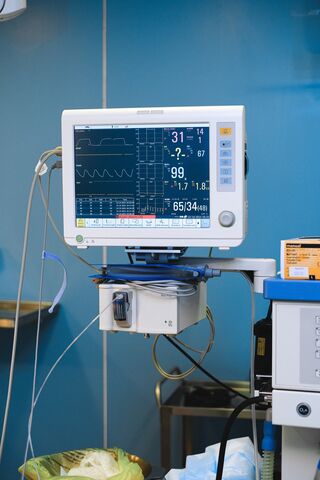Health
Is Acute Stress Associated With Future Health Risk?
Are low cardiovascular reactions to stress health damaging?
Posted September 16, 2022 Reviewed by Davia Sills
Key points
- Many people are familiar with the physical toll that chronic stress can take on one's health.
- However, acute stressors, like a traffic jam or major presentation, also activate the cardiovascular system.
- When someone has either a highly elevated or blunted cardiovascular response to stress, it can cause long-term damage.

Previously, I discussed how chronic stress can be damaging to our health. However, what about acute or short-term stressors?
As we engage with day-to-day stressors (e.g., being stuck in traffic, giving a presentation at work), our cardiovascular system becomes activated, with notable increases in heart rate (HR) and systolic (SBP) and diastolic blood pressure (DBP). These elevations are normal: i.e., they are needed to meet the metabolic demands of managing and coping with these acute stressors. For some individuals however, these cardiovascular responses are either exaggerated, i.e., unusually higher, or blunted, atypically lower, relative to other people's responses to the same stressor.

What do these atypical cardiovascular reactions to acute stress mean?
First, there appears to be strong evidence to suggest that these individual differences in cardiovascular reactivity to acute stress are both heritable and stable over time. This suggests that how we respond to stress is partly genetic and that we also display similar patterns of responding to such stress across time. Second, there is now robust evidence demonstrating that individuals who display exaggerated cardiovascular reactions to acute stress are at an increased risk of future cardiovascular disease outcomes, including hypertension and atherosclerosis, but also cardiovascular disease mortality.
If exaggerated reactions are cardiotoxic, what about lower cardiovascular responses?
Previously, it was assumed that lower cardiovascular responses to acute stress were healthy or benign. However, a body of work began to emerge challenging this notion, demonstrating that atypically lower or blunted reactions were associated with cardiac outcomes, psychopathology, and negative health behaviors, which by themselves are important health outcomes but also indirect pathways to heart disease. Despite this, the precise level of cardiovascular reactivity for blunted responses has not been established till now.
Identifying the threshold levels of blunted cardiovascular reactivity to acute stress that are damaging to one's health
A new study published in Health Psychology Review by Dr. Adam O ’Riordan, who is now a postdoctoral researcher based at the University of Baylor Texas, along with myself and Dr. Siobhan Howard from SASHLab, identified what levels of reactivity were toxic for health. In a systematic review of the literature, where only prospective studies were included, we found that reactivity-blunted threshold levels that were predictive of adverse health outcomes (e.g., obesity, depression, hypertension) ranged between -3.00-12.59 bpm) and -2.4-5.00 mmHg, for HR and DBP respectively.
What is important about this study?
It is important for a number of reasons. First, it confirms that blunted cardiovascular reactivity to acute stress is health-damaging for both cardiovascular disease as well as health outcomes that are indirectly linked to heart disease. Second, now that we have designated thresholds, researchers will no longer be left to arbitrarily determine if responses are blunted and signal poor health or, rather, are simply normative (lower) responses to psychological stress. Thus, we can now categorize and intervene with those most at risk of this responding type.
Third, prior to these identified ranges, much of the cardiovascular reactivity research on healthy populations, designed to identify where psychosocial factors are important moderators, was limited by the fact that researchers and clinicians were left without any clear guidance to decide if observed lower responses to the stressor are good, bad, or benign. As such, this was restricting the clinical application and relevance of such research findings. Thus, these ranges may be utilized by clinicians and researchers to identify and offer treatment to individuals who are at increased risk of adverse cardiovascular health outcomes, as well as outcomes associated.
References
O' Riordan A, Howard S, Gallagher S. Blunted cardiovascular reactivity to psychological stress and prospective health: a systematic review. Health Psychol Rev. 2022 May 5:1-27. doi: 10.1080/17437199.2022.2068639. Epub ahead of print. PMID: 35445639. https://pubmed.ncbi.nlm.nih.gov/35445639/


